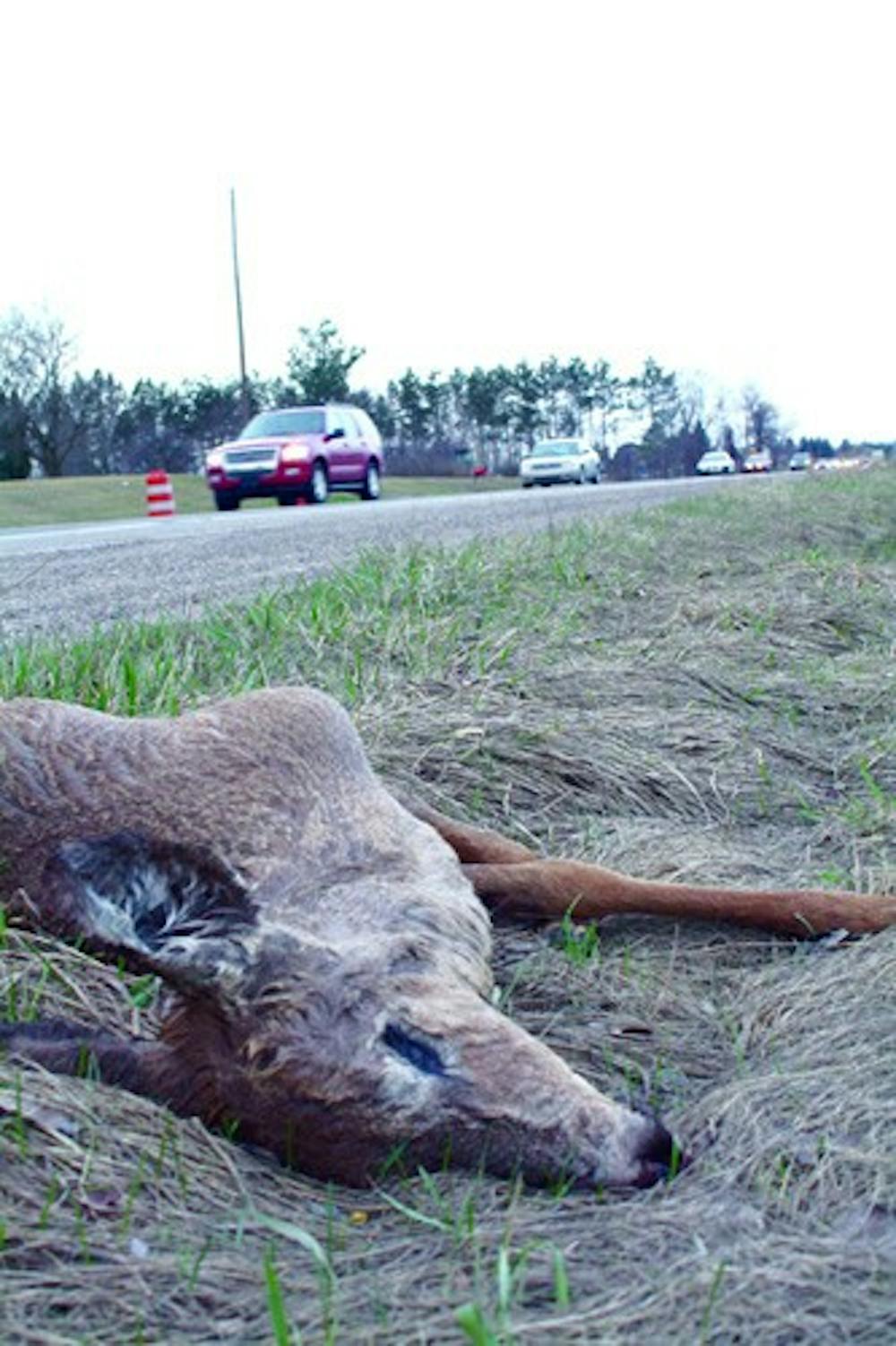Roadside animal removal could be made easier by Booher's Bill

A new Michigan law could make keeping roadkill easier for drivers.
Booher’s Bill passed in the state's Senate unanimously on March 26, and is awaiting approval from the House of Representatives and Gov. Rick Snyder.
The bill will allow drivers who collide with animals to pick up the carcasses, after notifying local authorities.
Matt Evans, legislative affairs manager of Michigan United Conservation Club, said Sen. Darwin Booher worked to develop the bill with the MUCC, which represents many conservation groups including the National Wild Turkey Federation. The groups are focused on conservation of Michigan's wildlife and natural resources.
“Allowing folks to pick up roadkill lets people use the hides and even the meat in some cases while cleaning up our roads a bit," he said. "It is a good thing as long as there are some safe-guards in place to fend off things like poaching."
Residents looking to take roadkill home are required to call the police or a Department of Natural Resources officer to come out to the location of the animal in question. They can also bring the animal to a DNR post or police station to be inspected and are issued a salvage tag or deer kill permit.
"There are usually a lot of dead deer and roadkill on the road," Evans said. "It is expensive and often it's one of those things that is not very high on (the state's) priority list. A lot of the times the money is not there."
The bill stipulates that deer, turkey, pheasant, adult bear and squirrel are allowed for pickup. Some of the species excluded include endangered species of wolf, elk, geese and spotted-fawn deer.
Nicole Cook, legislative assistant of the DNR, said the bill creates an inability to investigate illegal activity like poaching fur-bearing animals.
Cook worried the bill could also cause an increase in intentional collisions. Michigan ranks fourth in the U.S. for likelihood of deer-vehicle collisions.
More than 60,000 deer-vehicle collisions are reported to the Michigan State Police each year, but not all incidents are noted.
"It appears that the unintended consequences of the bill may have much more far-reaching effects than is the purpose and intent the bill hopes to address," Cook said. "Turkeys move leisurely and when hit do little to no damage to a vehicle – plus they taste good."
McBain sophomore Taylor Nederhoed grew up hunting the animals the bill is focused on. He said he doesn't think small animals would be at risk of being poached by people in cars unless they intend to use them for taxidermy.
"I feel like a turkey is gonna get destroyed (in a collision), same with a raccoon, squirrel or pheasant," he said. "I don't see how you could get anything out of them."
The bill would also allow for baiting larger animals such as bears.
Nederhoed said he thinks roadkill might be a good alternative use for all the dead deer he said he sees in McBain.
"I guess if you hit a deer, might as well use it for bait if you're hunting bear," he said. "At least something is going to happen with it, as opposed to sitting on the side of the road."
Roadkill bills that loosen restrictions have been seen more frequently in Montana, Illinois and even on the platform of a Texas House candidate who plans to make roadkill gathering legal.



